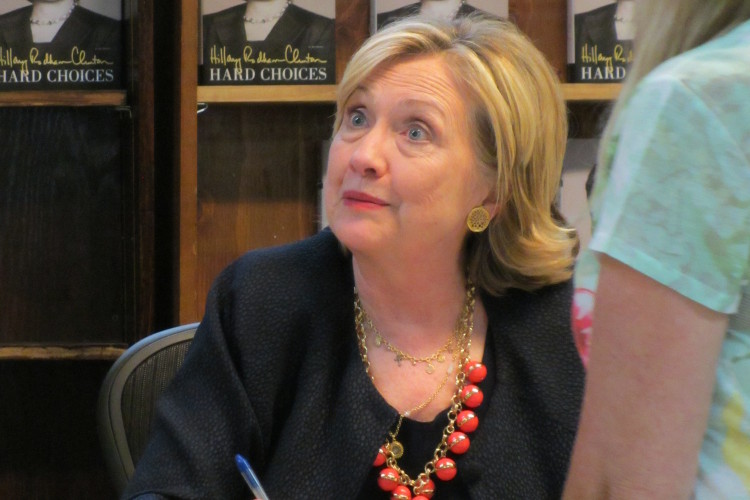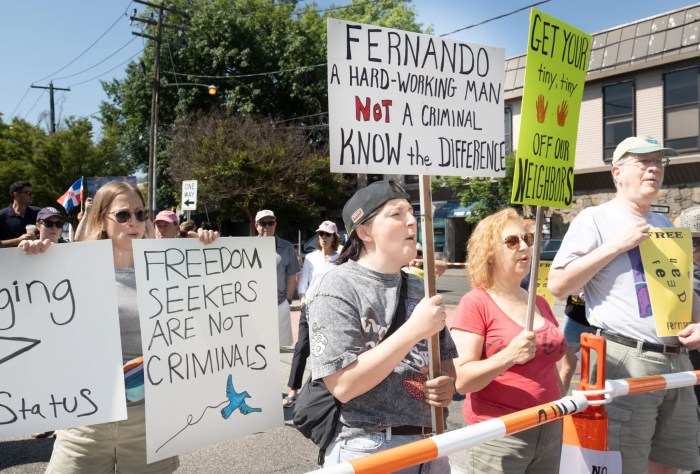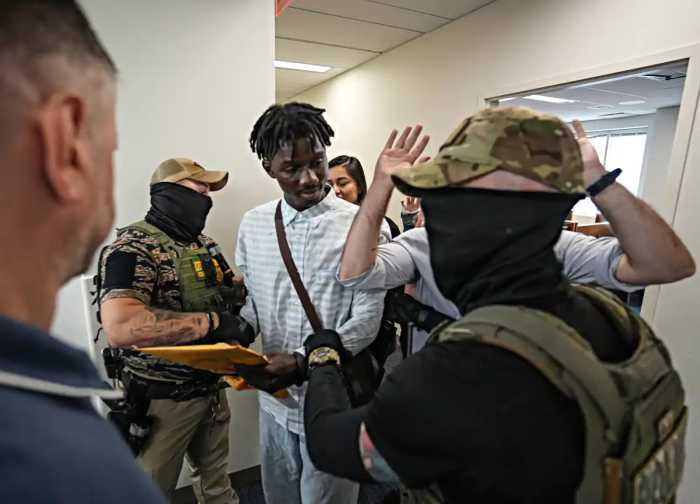This story was co-published with Gawker.
Update, March 27, 6:48 p.m.: This story has been updated to include responses from the FBI and the State Department.
Starting weeks before Islamic militants attacked the U.S. diplomatic outpost in Benghazi, Libya, longtime Clinton family confidante Sidney Blumenthal supplied intelligence to then-Secretary of State Hillary Clinton that was gathered by a secret network which included a former CIA clandestine service officer, according to hacked emails from Blumenthal’s account.
The emails, which were posted on the internet in 2013, also show that Blumenthal and another close Clinton associate discussed contracting with a retired Army special operations commander to put operatives on the ground near the Libya-Tunisia border while Libya’s civil war raged in 2011.
Blumenthal’s emails to Clinton, which were directed to her private email account, include at least a dozen detailed reports on the deteriorating political and security climate in Libya as well as events in other nations. They came to light after a hacker broke into Blumenthal’s account, and they have taken on new significance in light of the disclosure that she conducted State Department and personal business exclusively over an email server that she controlled and kept secret from State Department officials, a revelation only recently discovered by an ongoing Republican-led congressional investigation into the Benghazi attacks.
The contents of that account are now being sought by Rep. Trey Gowdy (R-S.C.), who chairs the special House committee. Clinton has handed over more than 30,000 pages of her emails to the State Department, after unilaterally deciding which ones involved government business; the State Department has so far handed almost 900 pages of those over to Gowdy’s committee. A Clinton spokesman told Gawker and ProPublica (which are collaborating on this story) that she has turned over all the emails Blumenthal sent to Clinton.
The dispatches from Blumenthal to Clinton’s private email address were posted online after Blumenthal’s account was hacked in 2013 by Romanian hacker Marcel-Lehel Lazar, who went by the name Guccifer. Lazar also broke into accounts belonging to George W. Bush’s sister, Colin Powell and others. He’s now serving a seven-year sentence in his home country and was charged in a U.S. indictment last year.
The contents of the memos, which have recently become the subject of speculation in the right-wing media, raise new questions about how Clinton used her private email account and whether she tapped into an undisclosed back channel for information on Libya’s crisis and other foreign policy matters.
Blumenthal, a New Yorker staff writer in the 1990s, became a top aide to President Bill Clinton and worked closely with Hillary Clinton during the fallout from the Whitewater investigation into the Clinton family. She tried to hire him when she joined President Obama’s cabinet in 2009, but White House Chief of Staff Rahm Emanuel reportedly nixed the idea on the grounds that Blumenthal was a divisive figure whose attacks on Obama during the Democratic primary had poisoned his relationship with the new administration.
It’s unclear who tasked Blumenthal, known for his fierce loyalty to the Clintons, with preparing detailed intelligence briefs. It’s also not known who was paying him, or where the operation got its money. The memos were marked “confidential” and relied in many cases on “sensitive” sources in the Libyan opposition and Western intelligence and security services. Other reports focused on Egypt, Germany, and Turkey.
Indeed, though they were sent under Blumenthal’s name, the reports appear to have been gathered and prepared by Tyler Drumheller, a former chief of the CIA’s clandestine service in Europe who left the agency in 2005. Since then, he has established a consulting firm called Tyler Drumheller, LLC. He has also been affiliated with a firm called DMC Worldwide, which he co-founded with Washington, D.C., attorney Danny Murray and former general counsel to the U.S. Capitol Police John Caulfield. DMC Worldwide’s now-defunct website describes it at as offering “innovative security and intelligence solutions to global risks in a changing world.”
In one exchange in March 2013, Blumenthal emailed Drumheller, “Thanks. Can you send Libya report.” Drumheller replied, “Here it is, pls do not share it with Cody. I don’t want Moin speculating on sources. It is on the Maghreb and Libya.” Cody is Cody Shearer, a longtime Clinton family operative—his brother was an ambassador under Bill Clinton and his now-deceased sister was married to Clinton State Department official Strobe Talbott—who was in close contact with Blumenthal. While it’s not entirely clear from the documents, “Moin” may refer to the nickname of Mohamed Mansour El Kikhia, a member of the Kikhia family, a prominent Libyan clan with ties to the Libyan National Transition Council. (An email address in Blumenthal’s address book, which was also leaked, was associated with his Facebook page.)
There’s no indication in Blumenthal’s emails whether Clinton read or replied to them before she left the State Department on Feb. 1, 2013, but he was clearly part of a select group with knowledge of the private clintonemail.com address, which was unknown to the public until Gawker published it this year. They do suggest that she interacted with Blumenthal using the account after she stepped down. “H: got your message a few days ago,” reads the subject line of one email from Blumenthal to Clinton on Feb. 8, 2013; “H: fyi, will continue to send relevant intel,” reads another.
The memos cover a wide array of subjects in extreme detail, from German Prime Minister Angela Merkel’s conversations with her finance minister about French president Francois Hollande—marked “THIS INFORMATION COMES FROM AN EXTREMELY SENSITIVE SOURCE”—to the composition of the newly elected South Korean president’s transition team. At least 10 of the memos deal in whole or in part with internal Libyan politics and the government’s fight against militants, including the status of the Libyan oil industry and the prospects for Western companies to participate.
One memo was sent on Aug. 23, 2012, less than three weeks before Islamic militants stormed the diplomatic outpost in Benghazi. It cites “an extremely sensitive source” who highlighted a string of bombings and kidnappings of foreign diplomats and aid workers in Tripoli, Benghazi and Misrata, suggesting they were the work of people loyal to late Libyan Prime Minister Muammar Gaddafi.
While the memo doesn’t rise to the level of a warning about the safety of U.S. diplomats, it portrays a deteriorating security climate. Clinton noted a few days after the Benghazi attack, which left four dead and 10 people injured, that U.S. intelligence officials didn’t have advance knowledge of the threat.
On Sept. 12, 2012, the day after the Benghazi attack, Blumenthal sent a memo that cited a “sensitive source” saying that the interim Libyan president, Mohammed Yussef el Magariaf, was told by a senior security officer that the assault was inspired by an anti-Muslim video made in the U.S., as well as by allegations from Magariaf’s political opponents that he had CIA ties.
Blumenthal followed up the next day with an email titled “Re: More Magariaf private reax.” It said Libyan security officials believed an Islamist radical group called the Ansa al Sharia brigade had prepared the attack a month in advance and “took advantage of the cover” provided by the demonstrations against the video.
An Oct. 25, 2012 memo says that Magariaf and the Libyan army chief of staff agree that the “situation in the country is becoming increasingly dangerous and unmanageable” and “far worse” than Western leaders realize.
Blumenthal’s email warnings, of course, followed a year of Libyan hawkishness on the part of Clinton. In February of 2011, she told the UN Human Rights Council in Geneva that “it is time for Gaddafi to go.” The next month, after having described Russian reluctance over military intervention as “despicable,” Clinton met with rebel leaders in Paris and drummed up support for a no-fly zone while in Cairo. On March 17, 2011, the UN Security Council voted to back Libyan rebels against Gaddafi.
It’s this buildup, which Clinton still proudly recalled in her 2014 memoir, that Blumenthal appears to join in on 2011. In addition to the intel memos, his emails also disclose that he and his associates worked to help the Libyan opposition, and even plotted to insert operatives on the ground using a private contractor.
A May 14, 2011 email exchange between Blumenthal and Shearer shows that they were negotiating with Drumheller to contract with someone referred to as “Grange” and “the general” to place send four operatives on a week-long mission to Tunis, Tunisia, and “to the border and back.” Tunisia borders Libya and Algeria.
“Sid, you are doing great work on this,” Drumheller wrote to Blumenthal. “It is going to be around $60,000, coverting r/t business class airfare to Tunis, travel in country to the border and back, and other expenses for 7-10 days for 4 guys.”
After Blumenthal forwarded that note to Shearer, he wrote back questioning the cost of the operation. “Sid, do you think the general has to send four guys. He told us three guys yesterday, a translator and two other guys. I understand the difficulty of the mission and realize that K will be repaid but I am going to need an itemized budget for these guys.”
“The general” and “Grange” appear to refer to David L. Grange, a major general in the Army who ran a secret Pentagon special operations unit before retiring in 1999. Grange subsequently founded Osprey Global Solutions, a consulting firm and government contractor that offers logistics, intelligence, security training, armament sales, and other services. The Osprey Foundation, which is a nonprofit arm of Osprey Global Solutions, is listed as one of the State Department’s “global partners” in a 2014 report from the Office of Global Partnerships.’
Among the documents in the cache released by Lazar is an Aug. 24, 2011, memorandum of understanding between Osprey Global Solutions and the Libyan National Transition Council—the entity that took control in the wake of Qadaffi’s execution—agreeing that Osprey will contract with the NTC to “assist in the resumption of access to its assets and operations in country” and train Libyan forces in intelligence, weaponry, and “rule-of-land warfare.” The document refers to meetings held in Amman, Jordan between representatives of Osprey and a Mohammad Kikhia, who represented the National Transition Council.
Five months later, according to a document in the leak, Grange wrote on Osprey Global letterhead to Assistant Secretary of State Andrew Shapiro, introducing Osprey as a contractor eager to provide humanitarian and other assistance in Libya. “We are keen to support the people of Libya under the sponsorship of the Ministry of Finance and the Libyan Stock Exchange,” Grange wrote. Shapiro is a longtime Clinton loyalist; he served on her Senate staff as foreign policy advisor.
Another document in the cache, titled “Letter_for_Moin,” is an appeal from Drumheller to then-Libyan Prime Minister Ali Zeidan offering the services of Tyler Drumheller LLC, “to develop a program that will provide discreet confidential information allowing the appropriate entities in Libya to address any regional and international challenges.”
The “K” who was, according to Shearer’s email, to be “repaid” for his role in the Tunisia operation appears to be someone named Khalifa al Sherif, who sent Blumenthal several emails containing up-to-the-minute information on the civil war in Libya, and appears to have been cited as a source in several of the reports.
Contacted by ProPublica and Gawker, Drumheller’s attorney and business partner Danny Murray confirmed that Drumheller “worked” with Blumenthal and was aware of the hacked emails, but declined to comment further.
Shearer said only that “the FBI is involved and told me not to talk. There is a massive investigation of the hack and all the resulting information.” The FBI declined to comment.
Blumenthal, Grange, and Kikhia all did not respond to repeated attempts to reach them. Nick Merrill, a spokesman for Clinton had no comment on Blumenthal’s activities with Drumheller.
Whatever Blumenthal, Shearer, Drumheller, and Grange were up to in 2011, 2012, and 2013 on Clinton’s behalf, it appears that she could have used the help: According to State Department personnel directories, in 2011 and 2012—the height of the Libya crisis—State didn’t have a Libyan desk officer, and the entire Near Eastern Magreb Bureau, which which covers Algeria, Tunisia, Morocco and Libya, had just two staffers. Today, State has three Libyan desk officers and 11 people in the Near Eastern Magreb Bureau. A State Department official wouldn’t say how many officers were on the desk in 2011, but said there was always “at least one” officer and “sometimes many more, working on Libya.”
Reached for comment, a State Department public affairs official who would only speak on background declined to address questions about Blumenthal’s relationship to Clinton, whether she was aware of the intelligence network, and who if anyone was paying Blumenthal. Asked about the Tunisia-Libya mission, the official replied, “There was a trip with the secretary in October of 2011, but there was also a congressional delegation in April, 2011. There were media reports about both of these at the time.” Neither trip involved travelling via Tunis.
Related stories: For more coverage of Hillary Clinton’s email practices, read about her Top Five Clashes Over Secrecy and Echoes of her Past.
ProPublica is a Pulitzer Prize-winning investigative newsroom. Sign up for their newsletter.

































